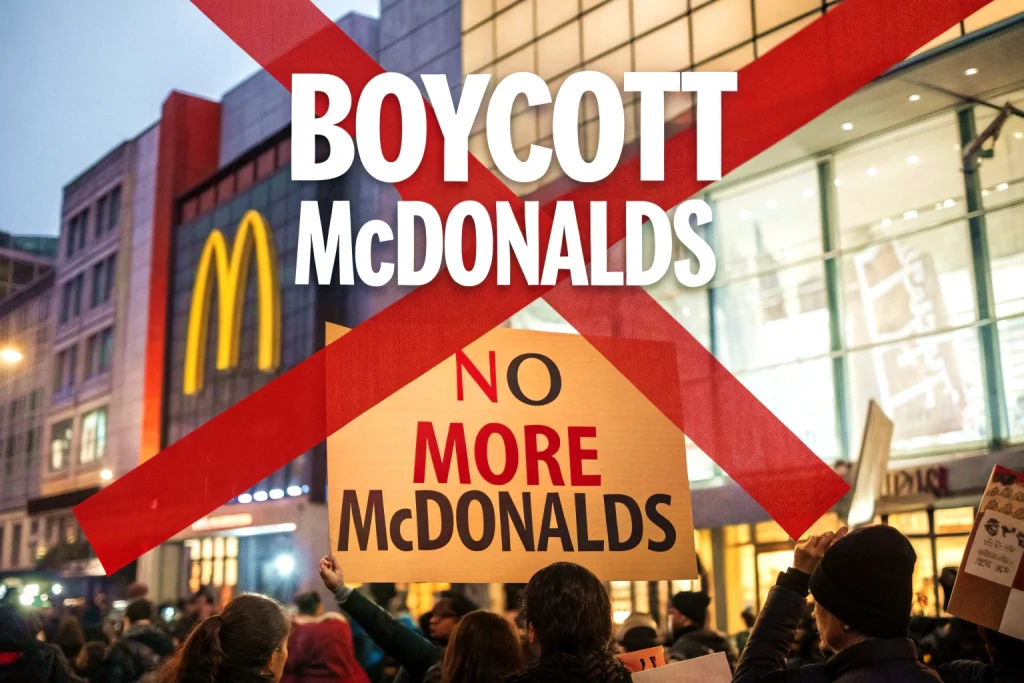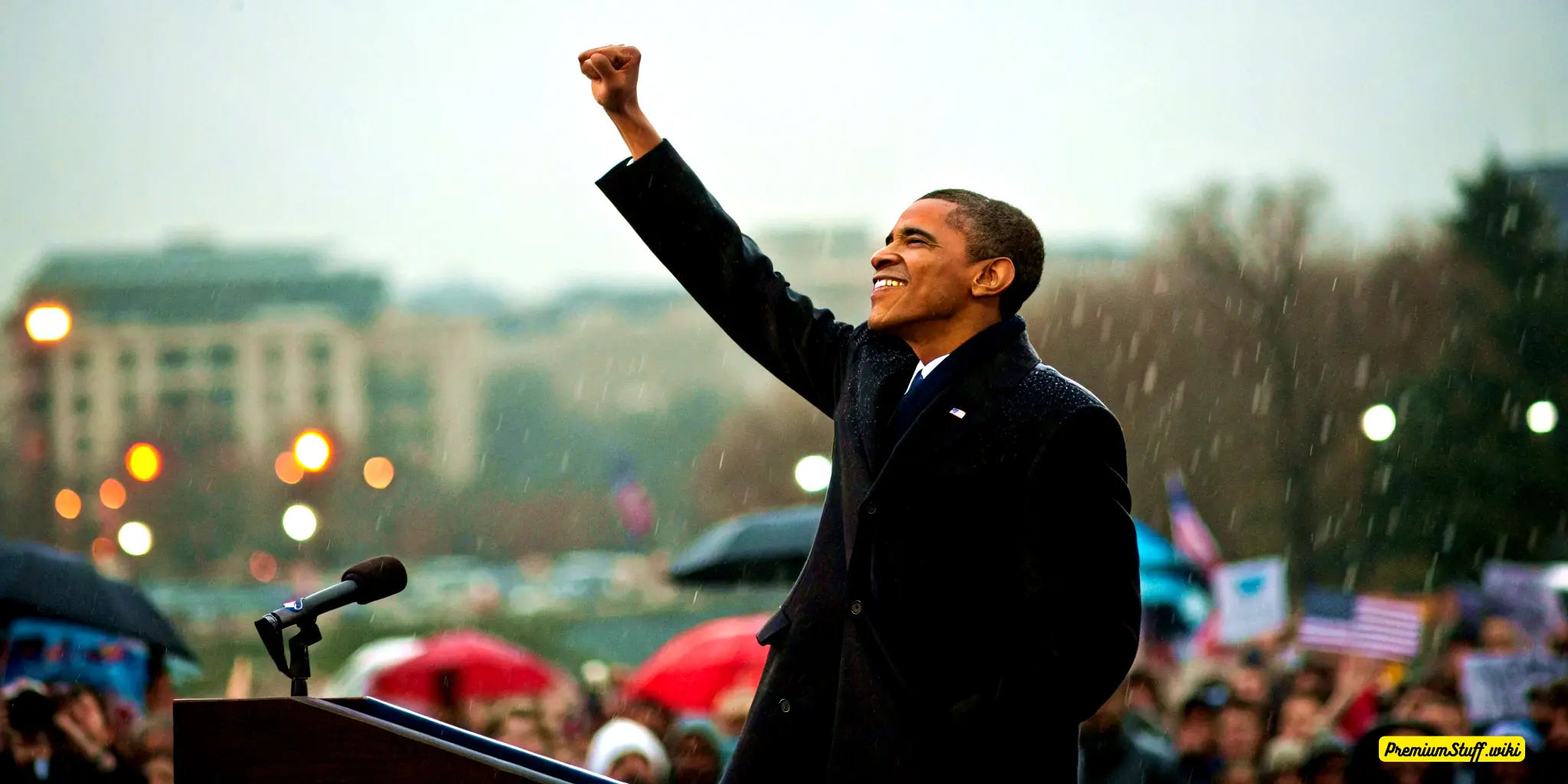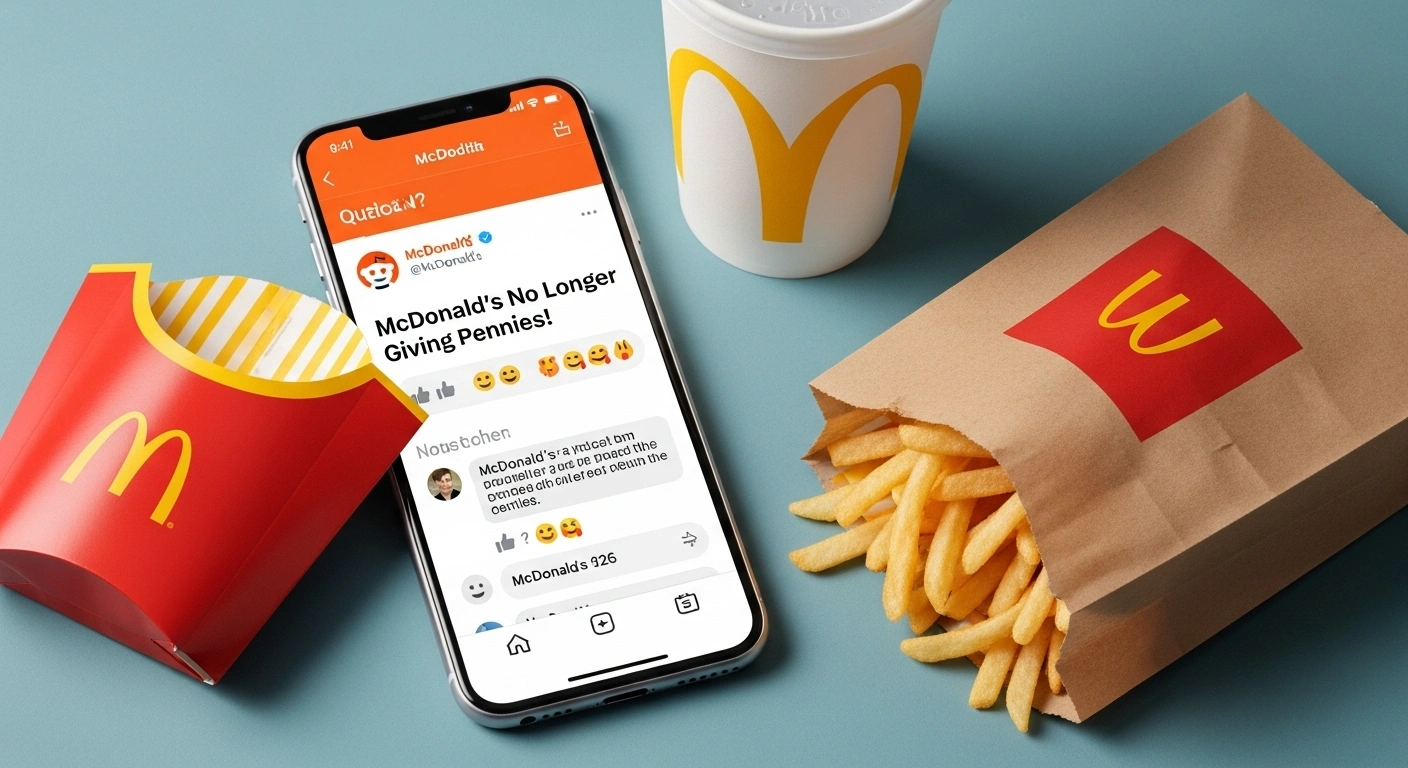McDonald’s Braces for Nationwide Boycott Over DEI Rollbacks
“We Funded Your Comeback, Now You Abandon Us”

CHICAGO – Starting Tuesday, June 24th, thousands of Americans plan to turn their backs on the Golden Arches in a coordinated protest. The reason? A growing chorus of consumers, civil rights groups, and workers accuses McDonald’s of abandoning its commitments to diversity, equity, and inclusion (DEI) just as political winds shifted – and they’re using their wallets to fight back.
The Spark: From Pledge to Pullback
The boycott, organized by the grassroots coalition The People’s Union USA, targets what protesters see as a stark reversal. In January 2025, McDonald’s quietly made significant changes:
- Retired Goals: The company eliminated specific, aspirational targets for increasing representation of women and people of color in its senior leadership ranks.
- Dropped Requirements: Requirements for franchisees to use diverse suppliers were scrapped.
- Withdrew from Surveys: McDonald’s stopped participating in external benchmarks like the Human Rights Campaign’s Corporate Equality Index.
- Rebranded: Its “Global DEI Center” became the “Global Inclusion Team,” a shift critics view as diluting the focus.
McDonald’s cited “shifting legal landscapes” as the driver, pointing to the 2023 Supreme Court ruling limiting affirmative action in college admissions and subsequent executive orders by the Trump administration targeting DEI programs in federal contracting and employment. “Our core programming remains unchanged,” insisted U.S. Chief People Officer Jordann Nunn, highlighting existing statistics: 30% of U.S. leaders now from underrepresented groups (up slightly from 29% in 2021), achieved gender pay equity, and roughly 25% of supplier spending still going to diverse-owned businesses.
Protesters aren’t buying it. “This is corporate betrayal, plain and simple,” declares John Schwarz, founder of The People’s Union USA. “McDonald’s made bold promises, especially after 2020, leveraging the support of diverse communities. Now, facing political pressure, they fold. It shows profit matters more than people.”
Who’s Protesting and What They Plan
The boycott, running June 24th through June 30th, aims to hit McDonald’s where it hurts: sales. Organizers include:
- The People’s Union USA: A coalition focused on economic justice and corporate accountability.
- Civil Rights Groups: Leaders like Rev. Al Sharpton have vocally condemned corporate DEI retreats, framing them as abandonment of communities that supported brands for decades.
- Black Churches & Social Justice Advocates: Mobilizing congregations and networks to participate.
- Franchise Employees & Managers: Some, speaking anonymously for fear of reprisal, express frustration and feeling caught in the middle. “Corporate makes these decisions in Chicago, but we’re the ones facing our neighbors asking why the diversity pledges vanished overnight,” shared one East Coast franchise manager.
Their tactics extend beyond just skipping the drive-thru :
- Social Media Blitz: Using hashtags like #BoycottMcDonalds, #EconomicBlackout, and #DEIBetrayal to spread awareness and share protest actions.
- Local “Teach-Ins”: Planned gatherings outside selected franchise locations, not to block access, but to educate consumers about the DEI rollbacks, wage disparities for frontline workers, and accusations of corporate price gouging. “We want customers to understand the full picture – it’s not just about DEI, it’s about corporate responsibility across the board,” Schwarz explained.
- Broader Campaign: This is just the opening salvo in The People’s Union USA’s “Economic Blackout Tour,” with boycotts targeting Walmart, Lowe’s, and Amazon planned for August.
McDonald’s on the Defensive Amid Wider Troubles
The boycott lands at a precarious moment for the fast-food giant. U.S. sales plummeted sharply in the first quarter of 2025, marking the company’s worst performance since the pandemic’s peak in 2020. CEO Chris Kempczinski pointed to broader “consumer uncertainty,” carefully avoiding directly blaming boycotts, but the timing is conspicuous.
McDonald’s is far from alone in scaling back DEI initiatives. Walmart, Ford, Google, and Meta have all made similar moves recently, often citing legal concerns. Target’s reversal on prominent Pride Month displays and DEI commitments in February 2025 reportedly led to months of reduced foot traffic, demonstrating the tangible impact such decisions can have. “Corporations are folding to political extremism,” argues civil rights advocate Lisa Tyson. “When Target rolled back DEI, we saw diversity-focused employees quit. The loss of talent and trust is a hidden, long-term cost they often underestimate.”
Voices from the Front Lines: Anger and Anxiety
The human element fuels the protest:
- John Schwarz, The People’s Union USA: “McDonald’s showed its true colors. They took our community’s dollars during their comeback, plastered ‘diversity’ all over their reports, and now, when it gets politically inconvenient, they walk it back. We’re done funding companies that pretend to stand for something while doing nothing. This boycott is economic resistance.”
- Lisa Tyson, Civil Rights Advocate: “This isn’t abstract. Real people built careers and supplier businesses based on those commitments. Real employees felt seen by those policies. Rolling them back sends a chilling message: ‘You were a trend, not a core value.’ The talent drain will be significant.”
- Anonymous Franchisee: “It’s incredibly frustrating. Corporate makes these sweeping policy changes reacting to politics or lawsuits, but we franchisees live and work in these communities. We have to answer to our employees and our customers face-to-face. They feel let down, and now we might bear the brunt of this boycott. Where’s the support for us?”
Broader Implications: Legal Wrangling and Workforce Realities
The McDonald’s situation reflects a volatile national debate:
- Legal Pressure: 13 Republican state attorneys general sent warnings to Fortune 100 companies, threatening lawsuits over race-based hiring or contracting, labeling them potential “reverse discrimination.” Activist groups like America First Legal, led by figures like Robby Starbuck, actively pursue such cases. The Equal Employment Opportunity Commission (EEOC) now explicitly flags certain DEI programs as potentially “unlawful” if they use quotas, causing many employers to scrub specific language from policies.
- Investor Tensions: Shareholders at companies like Apple and Disney have pushed back against anti-DEI proposals, while others, like Costco, face demands for civil rights audits to ensure fairness.
- Gen Z Expectations: Studies, including recent analysis from Harvard Business Review, suggest that scaling back DEI harms innovation and makes it harder to retain top talent, particularly younger workers from Gen Z who overwhelmingly prioritize inclusive workplaces. “McDonald’s might save itself some legal headaches today,” Tyson warns, “but they risk becoming irrelevant to the workforce of tomorrow.”
The Bottom Line: A High-Stakes Standoff
The McDonald’s boycott is more than a week-long protest, it’s a microcosm of America’s deepening cultural and political divides. Corporations are navigating a treacherous path, caught between the legal risks of proactive diversity initiatives and the brand damage and consumer backlash from abandoning them.
As Schwarz bluntly puts it: “We are the economy. If they want our dollars, they need to respect the people who keep them in business.” Whether the sizzle of burgers is replaced by the silence of empty restaurants next week, and whether that silence forces a corporate reconsideration, remains to be seen. But one thing is clear: the fight over the soul – and the policies – of corporate America is being waged one french fry at a time.








